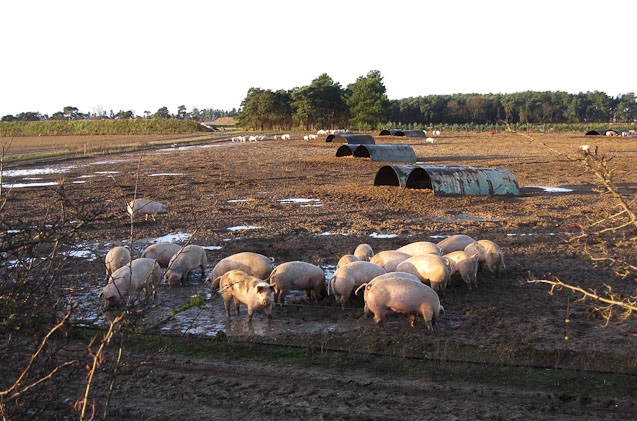
The National Pig Assocation warns that pig farmers are more vulnerable to unfair treatment by supermarkets as prices fall.
In a 13-page report published yesterday on "Unfair business-to-business trading practices", the Brussels department for the internal market, says it won't propose new legislation to rectify unfair food-chain behaviour.
But this isn't the end of the matter, says the National Pig Association. The first preparatory meeting of Europe's High Level Forum for the Better Functioning of the Food Supply Chain (which has received a renewed mandate until 2019) will take place on February 18.
Yesterday's report says recently introduced national practices and voluntary initiatives should help even up the balance of power, but it will look at the situation again in four years.
This conclusion will disappoint the many MEPs and farm lobby groups that have called on Brussels to somehow find a way to give farmers more clout in their dealing with retailers, citing abusive practices such as late payments, unilateral changes to contracts and shifting of risk to suppliers.
The report recognises recent declines in food prices, particularly in the pork and dairy sectors, have made farmers more vulnerable to unfair behaviour.
But it notes 20 member countries had already introduced legislation to tackle this issue, including enforcement mechanisms.
The report acknowledges the need to ensure greater participation by those farm groups that have so far shunned membership, complaining of insufficient confidentiality for plaintiffs, and a lack of independent investigations and sanctions.
Earlier last month, the National Pig Association urged pig producers to start talking to their bankers as farmgate prices for pigs continue to plunge to their lowest level for eight years with little prospect of much improvement for the rest of the year.
"Some producers may not be aware how much banking culture has changed since they last needed to renegotiate overdraft arrangements, or apply for a term-loan," said NPA vice-chairman Richard Longthorp.
"Local managers have far less freedom and flexibility and consequently putting new arrangements in place can now be a lengthy process, involving policy-makers further up the banking foodchain".
Most pig-keepers will be operating in the red for some or all of this year, as the European pig-cycle reaches its lowest point in more than half a decade, driven by higher output and compounded by Russia's embargo on European Union pigmeat.
According to quarterly data produced by the Agriculture and Horticulture Development Board, British producers currently need 139p a kilo deadweight to cover all costs, including reinvestment.
The current Standard Pig Price, calculated from data supplied by abattoirs, has now fallen to below 122p a kilo, putting serious pressure on cashflows, even when maintenance and reinvestment have been put on hold.
Despite low feed prices, many British producers are making a cash loss on every pig they sell, but they are still better placed than their continental counterparts, as British pork attracts a 20p-30p a kilo premium.
